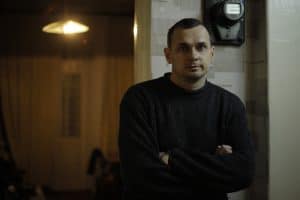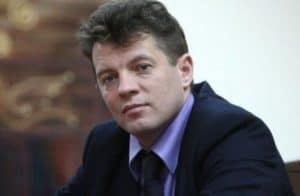With Russia Back in the Council of Europe, It’s Time for Some Tough Love
On June 26, the Parliamentary Assembly of the Council of Europe, among Europe’s most important human rights institutions, delivered a gift to Russia by lifting sanctions and restoring its good standing in the body, despite Russia’s complete lack of progress to resolve its illegal annexation of Crimea and military excursion into the Eastern Ukraine.
This puzzling and disturbing vote by the legislative arm of the 47-nation Council of Europe—which is charged with charting the Council’s course on human rights, democracy, and the rule of law—risks sending the message that with time and stubbornness the Russian government can simply bully its way past its international commitments.
The decision drew immediate and harsh condemnation from Ukrainian human rights activists. In Russia, however, reaction from the human rights community was more nuanced, with many activists arguing that Russian participation in international governance forums like PACE is indispensable to any effort to push the country to take its international commitments seriously.
Some in the Russian human rights community had already been pushing to resolve tensions between Russia and the Council, fearing that if Russia left the Council altogether, it would cut off access to the European Court of Human Rights for the Russian people.
When PACE first sanctioned Russia, it did so to punish them for the illegal annexation of Crimea, and for the armed occupation of Ukrainian territory in the east. Since then, Russia has pushed back against its punishment, agitating to be allowed back into the good graces of PACE and suspending its dues payments.
But five years after being sanctioned, Russia’s behavior in Ukraine has not changed; in fact, the government has only tightened its grip on dissent and freedom of expression at home. It has expanded the government’s power to censor online content and control the internet; engineered a spate of attacks on artistic freedom, and recently arrested and blatantly attempted to frame journalist Ivan Golunov on spurious drug charges—a move the government reversed after mass protests, although it also arrested another dozen journalists at a protest following Golunov’s release.
It is impossible to believe that Putin and the Russian government do not see PACE’s action as a willingness to ignore its many abuses and a complete capitulation on Ukraine, specifically. Indeed, that view was expressed clearly by the speaker of the Russian-backed Crimean Parliament, Vladimir Konstantinov, who crowed after the decision that Europe was “beginning to understand the Russian status of Crimea as a reality.”
History will judge PACE’s decision by its effects over time. Can PACE actually push Russia in the right direction, now that it has “forgiven” this errant actor? Or has it lost whatever leverage it had in the process?
Early indications are not promising.
In its resolution to lift the sanctions, PACE included a series of recommendations to the Russian government, a wish list of actions that it expected Russia to undertake in return for reinstatement. These included releasing 24 Ukrainian sailors held in Russia, cooperating with Dutch investigators to hold those responsible for the crash of Malaysian Airlines flight MH17 accountable, preventing violations of the human rights of LGBTQIA+ individuals in Chechnya and holding those responsible for previous violations to account, and cooperating fully in the investigation of the murder of Russian politician Boris Nemtsov.
These are all critically important recommendations, but the list is woefully incomplete. Why would PACE not also include a call for Russia to demonstrate greater respect for freedom of expression and ensure the safety of journalists, a free and open internet, and space for artistic freedom within its borders? And why, in addition to the 24 Ukrainian sailors, would they not also call for the release of the 99 Ukrainian political prisoners unjustly detained in Russian prisons and kept in horrendous conditions, including filmmaker and writer Oleg Sentsov and journalist Roman Sushchenko? While not surprising, it is still disappointing that there was also no reference to the 130 hostages held by Russian-backed rebels in Donbass, including journalist and writer Stanislav Aseyev and blogger Oleg Galazyuk.
It beggars belief that, when given a singular opportunity to push Russia to act, those charged with promoting and protecting human rights throughout Europe, would fail to speak up for political prisoners and freedom of expression.
Human rights advocates must demand more from PACE and push to ensure it upholds its obligations.
This will require principled action from the newly-elected Secretary General of the Council of Europe, Marija Pejčinović Burić, who must hold Russia accountable to all the recommendations that PACE has already passed. In announcing its decision, PACE noted that it would “debate a report on the honouring of obligations and commitments by Russia no later than the April 2020 part-session.” That is a short window in which to push for improvements, but if Russia continues to make no progress on PACE’s demands, the Council must keep the option of new sanctions on the table. Russia will see anything less as further capitulation to its will.
The Council cannot create a “Russian exemption” on human rights, especially in a moment where several European governments are testing the boundaries of its institutions. Beyond emboldening Russia, a short-sighted and flat-out wrong approach like this will only embolden other bad actors, Viktor Orbán’s Hungary, for example.
Now that Russia has been welcomed back into the European fold, it is time for some tough love. The Council must follow up with principled action and Europeans must activate to make that happen.








